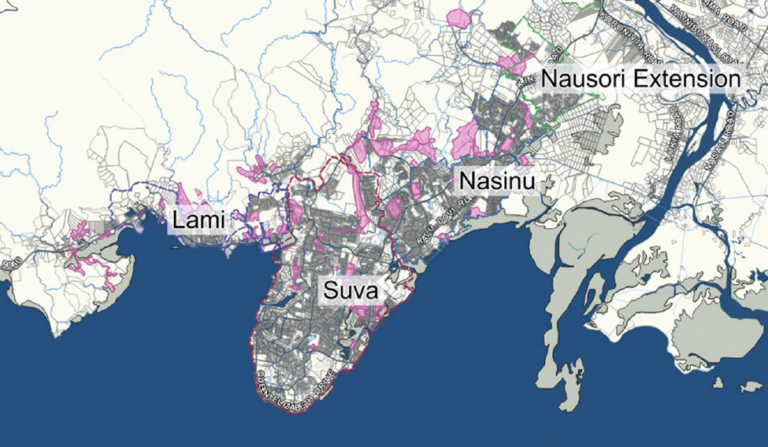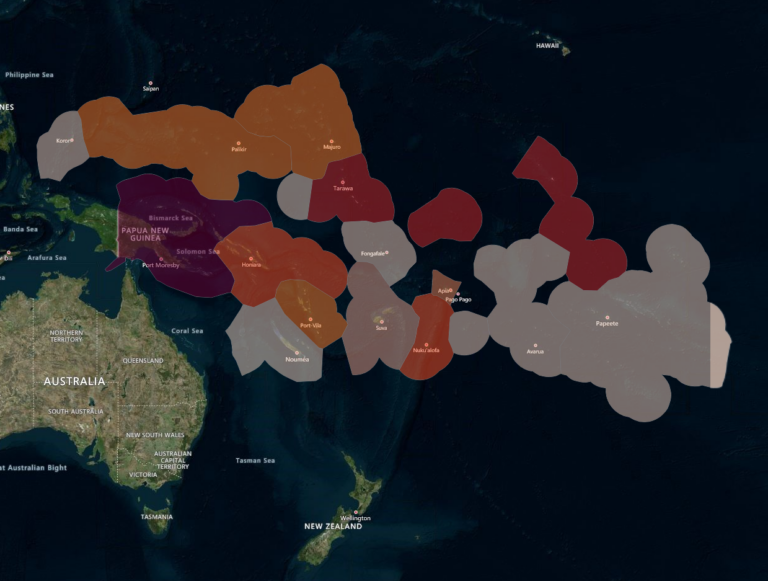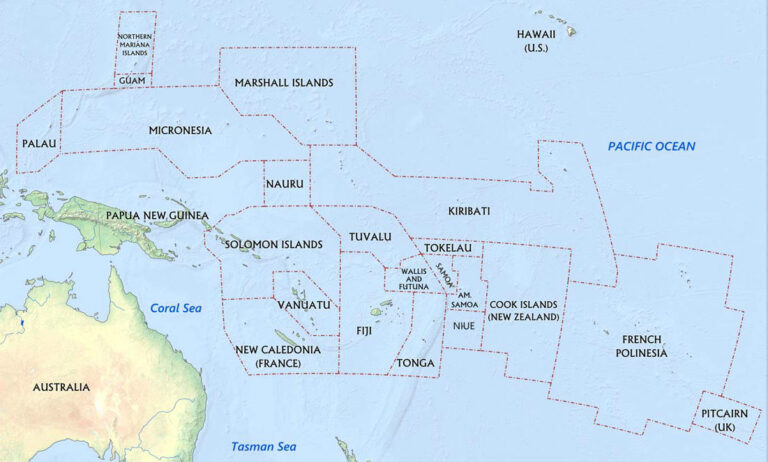Informal settlements are growing throughout the world. Their exact locations and populations are difficult to determine, however, given their inherently spontaneous and sporadic nature. Informal settlements are also uniquely vulnerable to environmental hazards, as they often consist of poor quality, semi-permanent structures on marginal land and have limited access to… read more
Rejecting Reality: Kiribati’s Shifting Climate Change Policies
In December 2015, world leaders passed the groundbreaking Paris Agreement at the 21st United Nations Framework Convention on Climate Change Conference of Parties (COP 21). In early December, world leaders met again in Madrid at COP 25 to negotiate details of the Paris Agreement and “were unable to reach consensus… read more
Misleading Maps: Challenges of Displaying Data in Oceania
My first post reviewed the challenges of creating and maintaining data sets in Oceania. My second discusses how this will affect our research, specifically our maps. Our goal is to “evaluate the adequacy of preparations for climate-related natural disasters … and identify priority action areas for the U.S. to address… read more
Disparate Data Sets: Information Challenges in Oceania
The purpose of our capstone course is to evaluate climate-change related disaster preparedness in a subset of Oceania to identify vulnerabilities and prioritize “action areas for the US to address climate-related risks.” Our ability to meaningfully identify areas of risk and opportunity, however, is limited by a lack of accurate,… read more





